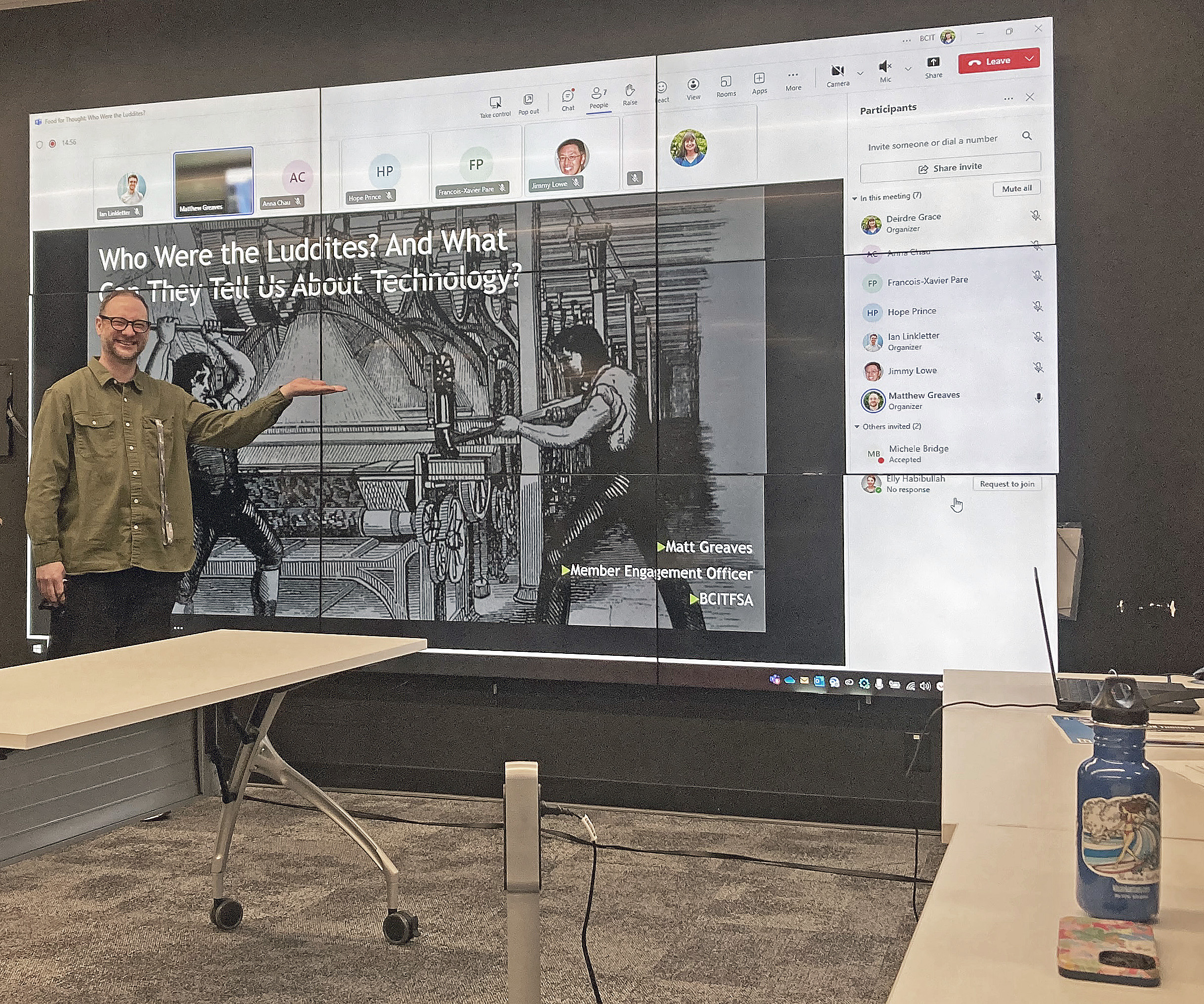 Ever call yourself a Luddite? Do you know where the term comes from?
Ever call yourself a Luddite? Do you know where the term comes from?
Matt Greaves (PhD), Member Engagement Officer with the BCITFSA, went through the history of the Luddites in his March 19 Food for Thought presentation entitled Who Were the Luddites? Technology, Power, and Labour: Lessons from the Past. In a past life, Matt taught labour history at the post-secondary level.
Luddites refers to people who resist new technology. Those of us online or at the Library Summit Centre learned that the original Luddites were machine breakers in early nineteenth-century England. These skilled artisans knew that the machinery being brought into the factories to speed up production were a threat to their way of life. Shifting skills from humans to machines would result in lower wages or job losses. Without any state supports at the time other than workhouses with high mortality rates, workers knew that the machines would likely lead to the breakup of their families or, perhaps, premature deaths.
Because collective bargaining had been illegal in Britain since 1799, machine wrecking was the only form of resistance open to workers. They called themselves Luddites after Ned Ludd, a mythical mill worker who supposedly was the first to wreck a machine.
Matt then described for us two visions of how we think about technology. There is classical determinism, which sees technology as autonomous and dominant over humans — a dystopian view common in science fiction. And there is progressive determinism, which sees technology as positive — this is the vision we are living with today.
Is there a place for technology that lies somewhere between these two visions? Yes, says Matt. He concluded his talk by describing the fields of study around science and technology that have developed since the 1970s. However, because the links between technology and sociology have not been well defined, the ways in which technology contributes to greater inequality have not been thoroughly studied. Matt believes it would be beneficial to examine who benefits from technology and who is disadvantaged by it. And, to bring the discussion full circle, Matt suggested that the Luddites in their own way understood this.
The session concluded with a thoughtful Q&A where attendees drew parallels between what the Luddites went through more than 200 years ago and the challenges we are facing today with the increasing power of modern technology, in particular GenAI.
Food for Thought sessions are hosted by BCIT Library and the Learning and Teaching Centre throughout the academic year, and are opportunities for faculty and staff to showcase research, learning and teaching practice, student support services, and innovation at BCIT. The sessions are hosted on Teams and in-person at the Library Summit Centre (where a light lunch is provided). A calendar of upcoming sessions and recordings of previous sessions are available on the Library Food for Thought SharePoint page.
Get updates to LTC News by joining LTC News | Teams channel.
Leave a Reply